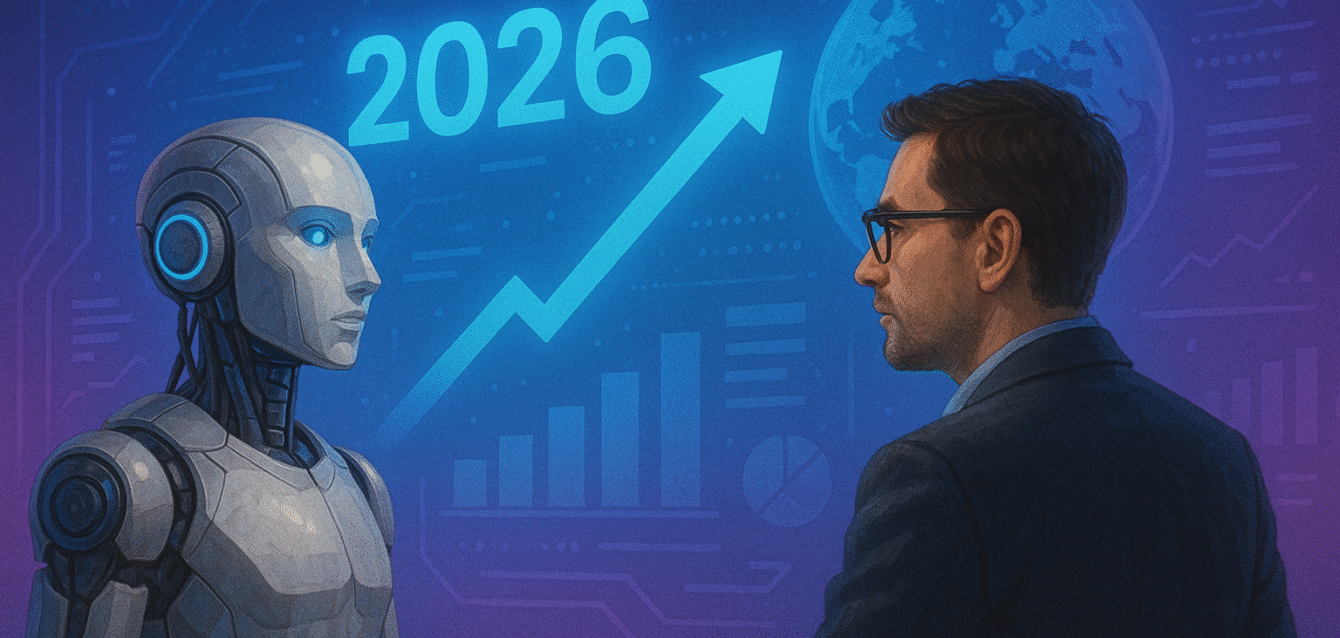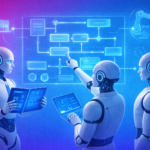Reflecting on AI Agent Advancements in 2025
As of mid-2025, AI agents have already made remarkable strides, transforming human-machine interaction and becoming indispensable tools across various business functions. We’ve seen them excel in automating customer interactions, delivering hyper-personalized experiences, streamlining internal operations in HR and IT, and even playing an active role in business decision-making. Autonomous collaboration between agents (agent mesh networking), emotion-aware interfaces, and the deployment of AI agents on edge devices have become increasingly common, hinting at a future where AI isn’t just a tool, but a truly intelligent and adaptive colleague.
Predictions for AI-Powered Agents in 2026 and Beyond
The rapid pace of AI innovation suggests that the advancements witnessed in 2025 are merely the prelude to an even more transformative future for AI agents. Here’s what we can expect in 2026 and beyond:
- Increased Autonomy and Complex Decision-Making: AI agents will move beyond following instructions to interpreting data, understanding complex contexts, and making informed decisions with minimal human oversight. They will be capable of managing end-to-end processes, from supply chain negotiations to dynamic workforce management.
- Widespread Multi-Agent Systems: Collaborative AI agent ecosystems will become the norm. Specialized agents will work together seamlessly across departments and even organizations to tackle highly complex tasks, like simulating molecular behavior in drug discovery or orchestrating entire content marketing workflows.
- Hyper-Specialization and Niche Expertise: While generalist AI models will continue to improve, we’ll see a surge in hyper-specialized agents performing at near-perfect precision for mission-critical tasks within specific verticals like legal, healthcare diagnostics, and highly regulated financial services.
- Proactive and Predictive Capabilities: Agents will not just react but proactively anticipate needs and problems. For example, AI agents in ERP systems will predict market trends and demand fluctuations, while cybersecurity agents will autonomously detect and isolate threats before breaches occur.
- Ethical AI Governance and Regulation: As AI agents become more autonomous, global regulations and ethical frameworks for their behavior, data access, and decision auditing will solidify, making responsible AI development and deployment a core business responsibility.
Advancements in NLP, Voice AI, and Autonomous Agents
These foundational technologies will continue to evolve, empowering AI agents with unprecedented capabilities:
- Natural Language Processing (NLP): Expect even more refined contextual understanding, making AI agents capable of handling ambiguous or highly nuanced queries with greater ease. Multimodal processing will allow agents to interpret and respond to a combination of text, voice, and visual inputs, leading to truly seamless interactions.
- Voice AI: Latency will continue to decrease, making voice interactions feel more natural and real-time. Generative AI will enable voice systems to offer hyper-personalized, context-aware responses with human-like empathy and tone, potentially replacing human phone operators in many routine scenarios. Voice will become a primary interface for interacting with AI, democratizing access to services previously inaccessible.
- Autonomous Agents: This is the frontier. These agents will possess enhanced planning frameworks, allowing them to break down complex goals into manageable steps. Their ability to integrate with external tools and APIs will expand exponentially, enabling them to execute actions and learn from results to improve future performance, even creating new software or tools to complete long-term objectives.
The Impact of AI Agents on Different Industries
The transformative power of AI agents will reverberate across virtually every sector:
- Healthcare: Beyond current triage and record management, AI agents will significantly enhance diagnostic capabilities, personalize patient care plans, and accelerate drug discovery through multi-agent simulations.
- Finance: Expect advanced fraud detection, real-time market trend prediction, automated investment strategies, and hyper-personalized financial advising. Regulatory compliance will also be increasingly automated by AI agents.
- Manufacturing and Logistics: AI agents will orchestrate end-to-end supply chains, predict maintenance needs for machinery, optimize production lines in real-time, and manage inventory with unprecedented efficiency.
- Customer Service: The hybrid human-AI model will mature, with AI agents handling the vast majority of interactions and seamlessly escalating to human agents for truly complex or emotionally charged situations. Human agents will become AI orchestrators and empathy specialists.
- Human Resources: AI agents will not only automate HR inquiries but also play a larger role in talent acquisition, performance tracking, and even personalized employee upskilling and training.
- E-commerce: Hyper-personalized shopping experiences, dynamic marketing campaigns, and real-time fraud prevention will become standard, all driven by sophisticated AI agents.
Conclusion: How Businesses Can Prepare for the Future
The future of AI agents in 2026 and beyond promises unprecedented levels of automation, personalization, and intelligence. Businesses that fail to prepare risk being left behind. Here are actionable steps to embrace this inevitable evolution:
- Develop an AI Strategy: Don’t just dabble; integrate AI agent deployment into your core business strategy, identifying high-value use cases across all departments.
- Invest in Data Infrastructure and Governance: High-quality, well-governed data is the fuel for advanced AI. Ensure your data systems are robust, secure, and compliant with evolving regulations.
- Prioritize Ethical AI: Establish clear internal guidelines and frameworks for ethical AI development, ensuring fairness, transparency, and accountability in your agent deployments.
- Foster a Culture of AI Literacy: Educate your workforce on AI agent capabilities and how to effectively collaborate with them. Focus on upskilling employees for higher-value, strategic roles that complement AI.
- Embrace Iteration and Experimentation: Start with pilot projects, learn from the outcomes, and continuously refine and scale your AI agent initiatives. The AI landscape is dynamic; agility is key.
- Form Strategic Partnerships: Collaborate with AI technology providers and expert consultants to navigate the complexities of advanced AI agent implementation.
By proactively adapting to these trends and strategically integrating AI agents into their core operations, businesses can unlock new levels of efficiency, deliver unparalleled customer experiences, and secure their position at the forefront of the AI-driven future.





